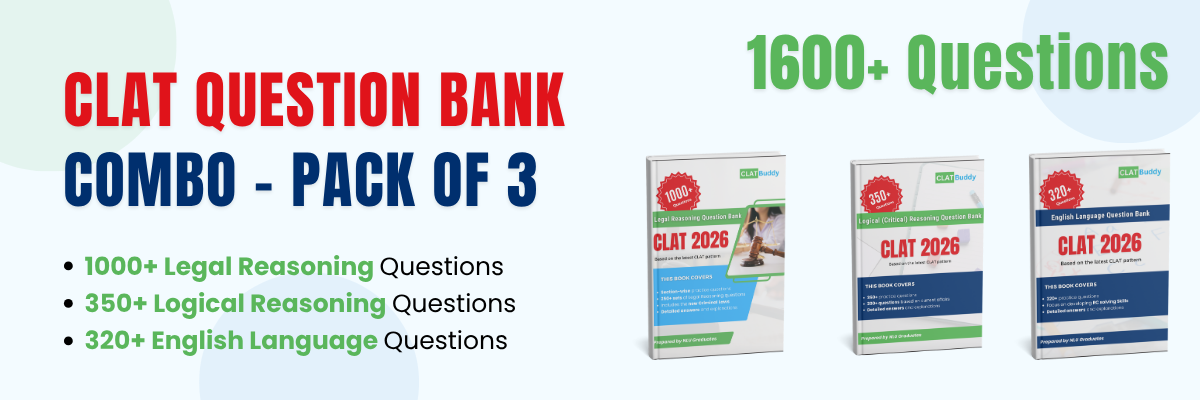Approaching logical reasoning questions in the CLAT effectively requires a combination of critical thinking, practice, and time management. Here’s a structured guide to help you tackle these questions:
Check out the logical reasoning question bank is here.
Understand the Type of Questions
In CLAT, logical reasoning questions are primarily passage-based. They test your ability to analyze, infer, and draw conclusions from given information. Common question types include:
- Inference and Conclusion: Identify what logically follows from the passage.
- Strengthen/Weaken the Argument: Choose options that make the argument stronger or weaker.
- Assumption: Identify hidden assumptions in the argument.
- Flaws: Spot logical errors or fallacies in reasoning.
- Analogy: Identify similar reasoning or patterns.
Develop a Systematic Approach
Here’s a step-by-step method to handle logical reasoning questions:
Read the Passage Carefully
- Focus on key ideas: Understand the main argument or the information being presented.
- Identify the structure: Look for the conclusion, premises (supporting facts), and any counterarguments or additional information.
- Note down keywords: These can be words like “because,” “therefore,” “however,” which indicate the logical flow of the argument.
Understand the Question
- Identify the question type: Determine if you are being asked to infer, find an assumption, or evaluate an argument.
- Read the question thoroughly: Sometimes a small change in wording (e.g., “most likely” vs. “least likely”) can alter the meaning, so pay attention to what is being asked.
Analyze the Options
- Eliminate clearly wrong options: This reduces the burden of comparison and increases your chances of selecting the right answer.
- Compare remaining options: Focus on how each option relates to the argument or passage. The best answer is usually the one that directly addresses the question.
Avoid Assumptions
- Stick to the information given in the passage. Don’t bring in outside knowledge or personal opinions when answering. Logical reasoning is based solely on what is stated or implied in the text.
Common Tips for Different Question Types
- Inference Questions: Focus on facts in the passage. Inference questions require you to draw conclusions based on those facts. The correct answer will not introduce new information but will logically follow from what’s given.
- Strengthen/Weaken Questions: Strengthening an argument means finding an option that makes the conclusion more convincing, while weakening it requires finding an option that undermines it. Test each option by asking yourself, “Does this make the argument stronger/weaker?”
- Assumption Questions: The assumption is an unstated premise that the argument relies on. A useful trick is the negation test: If negating the assumption destroys the argument, then that is the correct assumption.
- Flaws in Argument: Look for common logical fallacies like false cause, overgeneralization, or circular reasoning. Identify if the conclusion is based on faulty logic.
Time Management
Don’t spend too much time on a single question. Logical reasoning passages may vary in difficulty, so if you’re stuck, move on and come back later if time permits. Practice regularly with mock tests to improve speed and accuracy. Familiarity with different question types will also help you spot patterns more quickly.
Practice and Review
Logical reasoning is a skill, so the more you practice, the better you’ll get. Review your mistakes after practice tests to understand where your reasoning went wrong and avoid similar errors in the future.
Calling all law aspirants!
Are you exhausted from constantly searching for study materials and question banks? Worry not!
With over 15,000 students already engaged, you definitely don't want to be left out.
Become a member of the most vibrant law aspirants community out there!
It’s FREE! Hurry!
Join our WhatsApp Groups (Click Here) and Telegram Channel (Click Here) today, and receive instant notifications.





